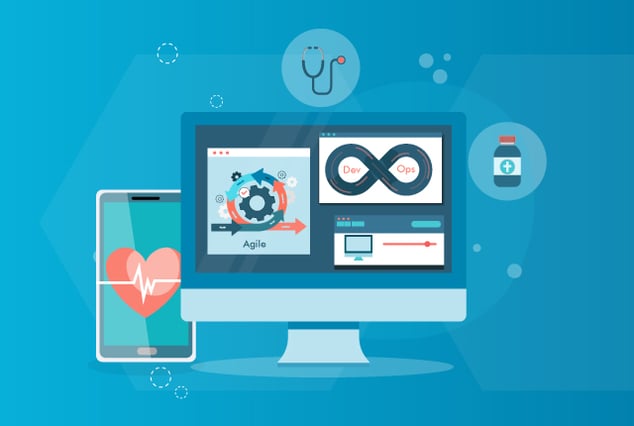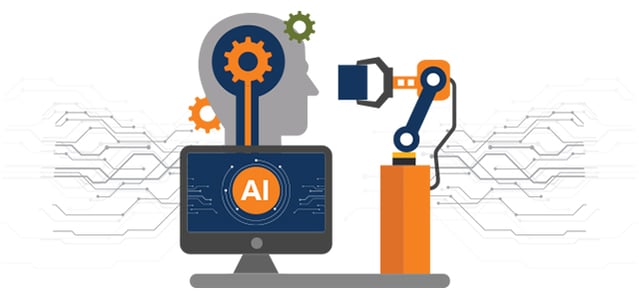
Thanks to artificial intelligence, impossible ideas of the past have become the reality of today. With AI, we have discovered more about the greatness of outer space as well as the micro-complexity of diseases and the possibilities for more value remain endless. In everyday life, we interact with AI when talking to our smartphones, shopping online and streaming our favorite TV shows and songs.
So, it should be no surprise that software QA is quickly shifting towards integrating AI in QA testing. In fact, the AI industry is rapidly growing year after year and predicted to be one of the biggest software testing trends of this year.
But is that all AI is—a trend? Does it really deliver measurable value or is it only an obscure, costly buzzword that’ll fizzle out of practice?
Observing key players across many different industries confirms that the benefits of AI extend well beyond the PR significance of the shiny acronym. Both businesses and large corporations continue to integrate and refine their implementation of AI in their software testing practices because of how it delivers significant returns on value to their customers, to their internal teams and to the company as a whole.
How can your business experience the benefits of AI in your software QA practices? With the right tools, resources and mindset in place, AI testing can transform your software testing practices, enabling your team to deliver to market at a quicker pace while maintaining—and more often improving—your software quality.
Greater Test Coverage
AI in QA is designed to improve the quality of your software by increasing the overall depth and scope of your test cases. This can be achieved during the software QA process because artificial intelligence can quickly scan through memory, data tables, file contents and internal program states to determine whether or not your software is performing at optimal (and expected) levels. AI can also execute thousands of different tests concurrently, exceeding test coverage completion seen by even the largest manual testing teams.
Greater Control of Test Activities
A substantial amount of time during the software QA process is dedicated to planning test cases and testing activities needed to ensure that the software is ready for market. As one of the benefits of AI in QA testing, artificial intelligence testing tools can decrease the time of the planning phase by crawling through your software and generating all possible test case scenarios that AI can test. With this insight, your testers have more control on prioritization, deciding which tests should be executed and how these test activities should be carried out.
Reduced Bottlenecks in the Testing Process
Like any well-oiled machine, automated testing requires test maintenance to ensure the accuracy, efficiency and security of the software. It takes time for testers to go into the code manually, identify the change that occurred and update the test flow where needed. Test maintenance, while essential, is one the largest bottlenecks experienced by software QA teams that impacts other holdups of the test cycle including agile environment support and increasing test coverage.
One of the benefits of AI is the ability to integrate machine learning within the test maintenance process. Because of AI in QA testing, manual updates to the code are no longer needed. Rather, test cases become more resilient, which in turn decreases the time and resources needed to carry out correct test maintenance. Resolving this bottleneck means less of an impact on other test cycle holdups and more time for testers to focus on fixing these other bottlenecks
Greater Transparency & Reporting with Testing
Insight is key to a successful software QA test cycle. Which test cases have been executed? What were the results? Which test cases need more testing criteria? Which test cases need to be revisited? Which test cases need to be addressed by your development team?
Because of its machine-like qualities, AI in QA testing provides this needed transparency. Since AI stores everything within the system, your development and testing teams can quickly trace and access all details of all test cases executed by the artificial intelligence. AI tools can report back on every test case it executes, from the status of the testing and the results discovered from the test to what needs to be addressed by your teams. This insight helps identify dead cases and prevents test cases from being accidentally overlooked.
Improved Efficiency with Test Case Reuse
Are you assigning the right test cases to your software QA team? Tests that center around repeating the same mundane steps over and over again are often not the best use of your testing talent, especially when this often leads to errors. By integrating AI in QA testing, the monotonous test cases can be assigned to the machine. With more time for your team to focus on testing your software’s complex features, your testers can test more productively on test cases that are intellectually stimulating.
Here’s how artificial intelligence in testing makes this happen. Once a test case is created for the AI, it learns from experience how to apply these test formulas across the software application. The test cases only need to be created once and are remembered for future testing cycles, maintaining your team’s expected efficiency levels from project to project.
Reduced Test Cycle Time
A significant amount of planning is needed during the software QA process in order for the test cycle to run smoothly. The product must be analyzed, the test strategy must be designed, the test objectives must be defined, the test criteria must be established and the resources must be allocated correctly.
Fortunately, AI in QA can save time and costs during these phases of the test cycle. AI tools are designed to collect data, capture screenshots and remember past interactions with your system. As AI learns from these experiences, it can automatically write test cases for your system. This allows your team to focus on defining the needed objectives and testing criteria for manual test cases.
Improved Detection of Defects
Bugs can remain unnoticed within your software for long periods of time, and it’s this time that allows these bugs to grow and spider through your entire system. By integrating AI in QA testing, these bugs can be detected within seconds. Artificial Intelligence in software QA testing is designed to spot problems within the software quickly and early enough in the development process so that your developers can resolve the issues before reaching your QA team. AI testing can also run with every change to the source code and alerts your team if any test case fails. By teaming up with AI tools, your company can feel more confident in releasing your software to market and reduce risks of brand damage due to a malfunction, data security leak or poor user experience.
Reduced Test Costs
Human testers don’t intend to make mistakes. However, mistakes can be expected with manual testing. Software QA testers can accidentally execute steps incorrectly, overlook crucial data or simply lack the time test properly.
Time is money—and time not spent right can cost a company big. Errors that slip through the cracks during the manual testing process can lead to costly consequences including poor software performance, security threats and decreased customer trust and satisfaction. AI in QA is an investment that pays for itself by preventing disastrous—and more expensive—problems, not to mention allowing your team to reallocate manual testing costs towards more valuable test cases. If your team is not using AI for software testing or wants to learn more about how it can help drive better quality and efficiency, think about talking to an experienced QA testing partner like QASource.
Conclusion
AI is not just a buzzword—it’s the future of QA test automation. Businesses today can enjoy the benefits of AI by teaming up with a reliable QA service provider like QASource to make that change happen faster and more smoothly. Our team of testing experts specializes in all facets of AI automation testing and can assist your company’s development team achieve greater efficiency while maintaining scalability and accuracy. Talk to one of our specialists and get a quote today.




